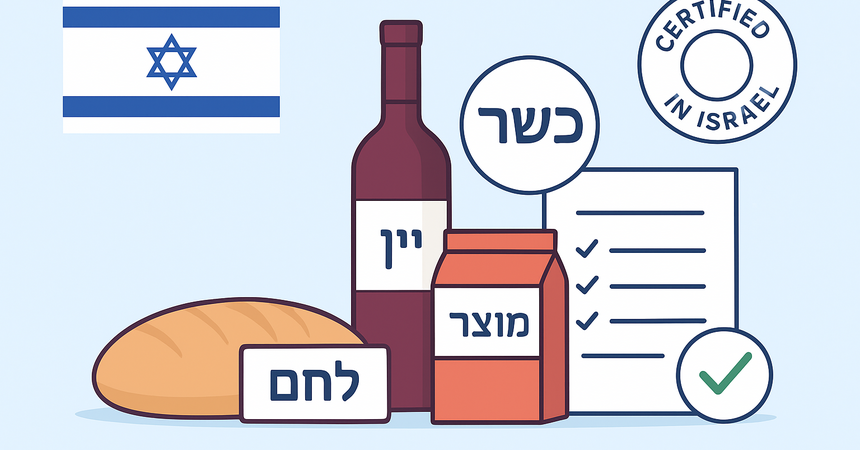The Israeli food and beverage market is highly competitive and strictly regulated. The state pays particular attention to safety, quality, and product transparency. For foreign manufacturers, certification is a key step to enter the market: without it, products will not be allowed for sale.
Main Regulatory Authorities
In Israel, food oversight is carried out by several state bodies:- Ministry of Health (MOH) — responsible for sanitary standards, safety, and registration of new product categories.
- Standards Institution of Israel (SII) — develops and enforces standards, conducts laboratory testing.
- Chief Rabbinate of Israel — certifies products applying for kosher status.
1. Compliance with sanitary standards — laboratory tests for pathogens, chemicals, pesticides, shelf life, and storage conditions.
2. Product labeling — in Hebrew, with product name, full composition, nutritional values, allergens, country of origin, expiration date, storage conditions, and kosher status if applicable.
3. Kosher certification — not legally mandatory but crucial in practice, as most supermarket chains refuse non-kosher products. Certification is issued under the supervision of the Chief Rabbinate.
4. Import procedures — importers must provide a certificate of compliance, proof of origin, Hebrew translations, and MOH approval.
Differences from International Standards
- Unlike the EU and USA, Hebrew labeling is mandatory.
- Foreign kosher certificates are not always automatically recognized.
- Approvals may take longer due to religious and sanitary inspections.
- Start certification at least 3–6 months before entering the market.
- Clarify which type of kosher certificate is required.
- Work with accredited laboratories in Israel or recognized partners.
- Prepare packaging and documentation in Hebrew in advance.
Conclusion
Entering the Israeli food and beverage market offers great opportunities but requires thorough preparation. Key steps include sanitary testing, proper labeling, and kosher certification.WorldWideBridge helps you navigate the entire certification process in Israel — from laboratory testing and documentation translation to kosher certification and import approval. We provide full-cycle support, end-to-end.
